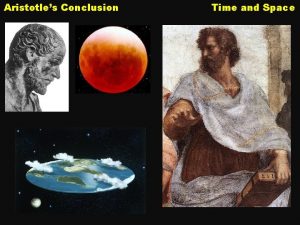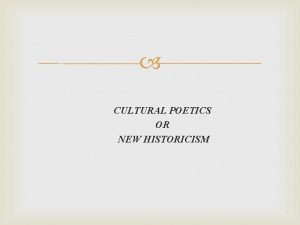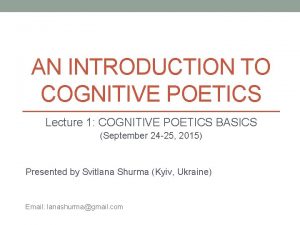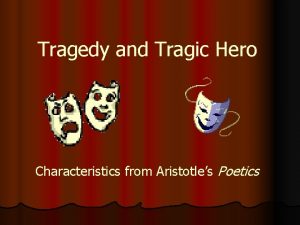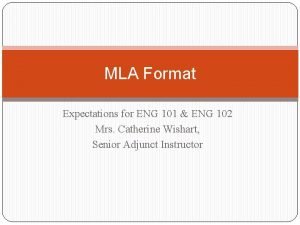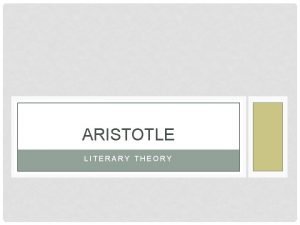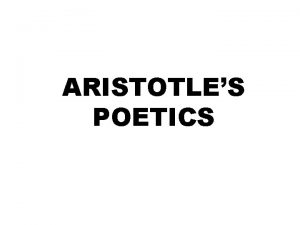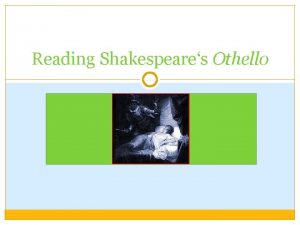Aristotles Poetics Introduction to William Shakespeares Othello AP








- Slides: 8

Aristotle’s Poetics Introduction to William Shakespeare’s Othello AP Literature and Composition

Thursday, November 8 Aim: What is the structure and definition of a Shakespearean tragedy? Objective: To read and understand Aristotle’s definition of tragedy.

Definition of Tragedy “Tragedy is an imitation of an action that is serious, complete, and of a certain magnitude; in language embellished with each kind of artistic ornament, the several kinds being found in separate parts of the play; in the form of action, not of narrative; with incidents arousing pity and fear, wherewith to accomplish its katharsis of such emotions. . Every Tragedy, therefore, must have six parts, which parts determine its quality—namely, Plot, Characters, Diction, Thought, Spectacle, Melody. ”

Plot (Mythos) The most important feature in tragedy The way the play is structured and arranged the outcome depends on a tightly constructed cause-and-effect chain of actions (following Freytag’s pyramid) The plot must be “of a certain magnitude, ” both quantitatively (length, complexity) and qualitatively (“seriousness” and universal significance) the more universal and significant the meaning of the play, the more the playwright can catch and hold the emotions of the audience

Character (Ethos) The protagonist should be renowned and prosperous, so his change of fortune can be from good to bad. This change “should come about as the result, not of vice, but of some great error or frailty in a character. ” Hamartia, or a tragic flaw of the protagonist results in generating pity and fear in the audience – he brings about his own downfall, not because he is sinful, but because he does not know enough (blindness)- often termed tragic irony.

Thought Through asides and monologues, the character’s inner thoughts are revealed The language of each character exposes a greater theme or understanding

Diction, Song, and Spectacle Diction- the use of figurative language, especially metaphors, is “the mark of genius, for to make good metaphors implies an eye for resemblances. ” Song- the Greek chorus should contribute to and propel the plot, not just be “mere interludes. ” Spectacle- refers to the special effects that reflects the art of the stage machinist (least important of the elements)

Katharsis Tragedy arouses the emotions of pity and fear (what he termed katharsis) in order to purge away their excess, to reduce these passions to a healthy, balanced proportion Fill out the first column of the “tragedy” worksheet with the example of tragedy that you noticed in the do now prompt.


